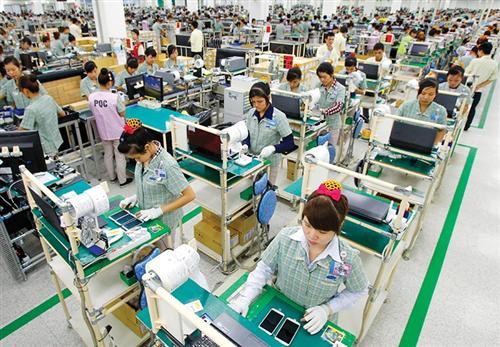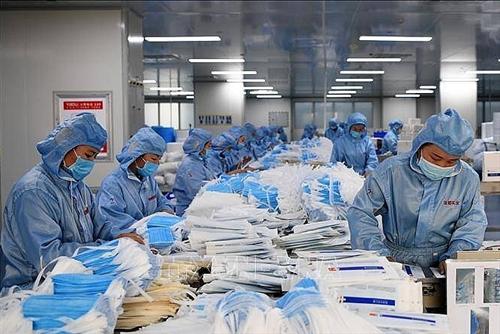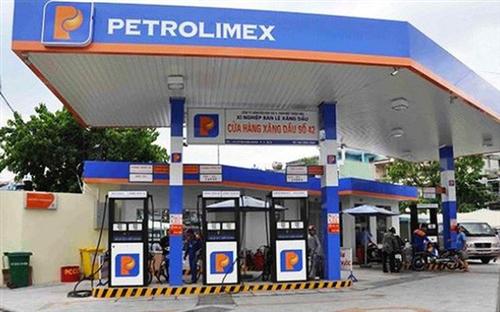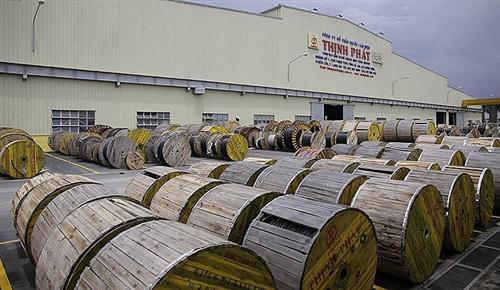Solutions should prioritise maintaining industrial production
Solutions should prioritise maintaining industrial production
The Ministry of Industry and Trade said that the most important priority at present was to maintain the operation of domestic industrial enterprises during the novel coronavirus (COVID-19) pandemic. 
The pandemic has caused a lot of difficulties for enterprises in Viet Nam, especially industrial enterprises. If an enterprise is closed due the pandemic, its workers lose their jobs and it has negative impacts on other businesses in the supply chain.
According to the ministry, many key industrial sectors had suffered greatly from the COVID-19 pandemic, especially electronics, textiles, leather, footwear and furniture.
The textile, garment, leather and footwear industries have suffered due to a decline in demand in the US and European markets, which has had strong impacts on national export value.
New orders in April and May are expected to fall by about 70 per cent. The ministry predicted that the likelihood of new orders this year end was low.
Enterprises were also facing problems at home because domestic demand was decreasing due to the pandemic.
The ministry suggested the Government implement three basic solutions to maintain operations at local industrial enterprises.
The Government needs to reduce the time and cost of customs clearance for businesses so they could access imported raw and auxiliary materials quickly, especially for large enterprises and enterprises in key industries such as electronics, automobiles, textiles, garments, leather and footwear, according to the ministry.
In addition, the State should have practical support policies on credit and tax to help businesses ensure production, while helping find new markets at home and abroad for the industrial sector, mainly export markets for key industrial products.
For the textile, garment and footwear industries, the ministry has recommended the Government allow extensions of payment deadlines for corporate income tax and value added tax.
It should also permit extensions of payment deadlines and exemptions or reductions for land rental fees, industrial park infrastructure fees and waste water treatment fees during the pandemic.
The ministry has asked the Government to consider a support package for corporate income tax for small- and medium-sized enterprises, especially in support industries and labour-intensive industries such as textiles, garments, leather and footwear.
Banks are also suggested reducing deposits and international payment fees for enterprises importing raw materials so they can access capital and resume manufacturing. The banks should extend terms for working loans to 11 months.
To implement these support solutions, the ministry suggested that other ministries, sectors and localities should accelerate the equitisation and divestment of capital in State-invested enterprises to increase budget revenue.
According to the Vietnam Electronic Industries Association, long-term and new export contracts would be few and far between due to the declining demand for electronic products due to lower demand from the US and European markets.
The domestic furniture production industry was no exception because the US and Europe were key markets accounting for 58 per cent of Viet Nam’s total furniture exports.
The Vietnam Timber and Forest Product Association reported that exports of timber and wooden products would fall significantly in the next three-six months due to the impacts of COVID-19. That could lead enterprises to cut 70 per cent of capacity and even temporarily suspend production.
Some enterprises producing wooden products for the domestic market would only be able to operate at about 10-15 per cent of their capacity.


























